Feng Shui tips for your home office – how to create the right energy for a productive workspace
8 home office Feng Shui tips from the experts to ensure your WFH set-up feels right
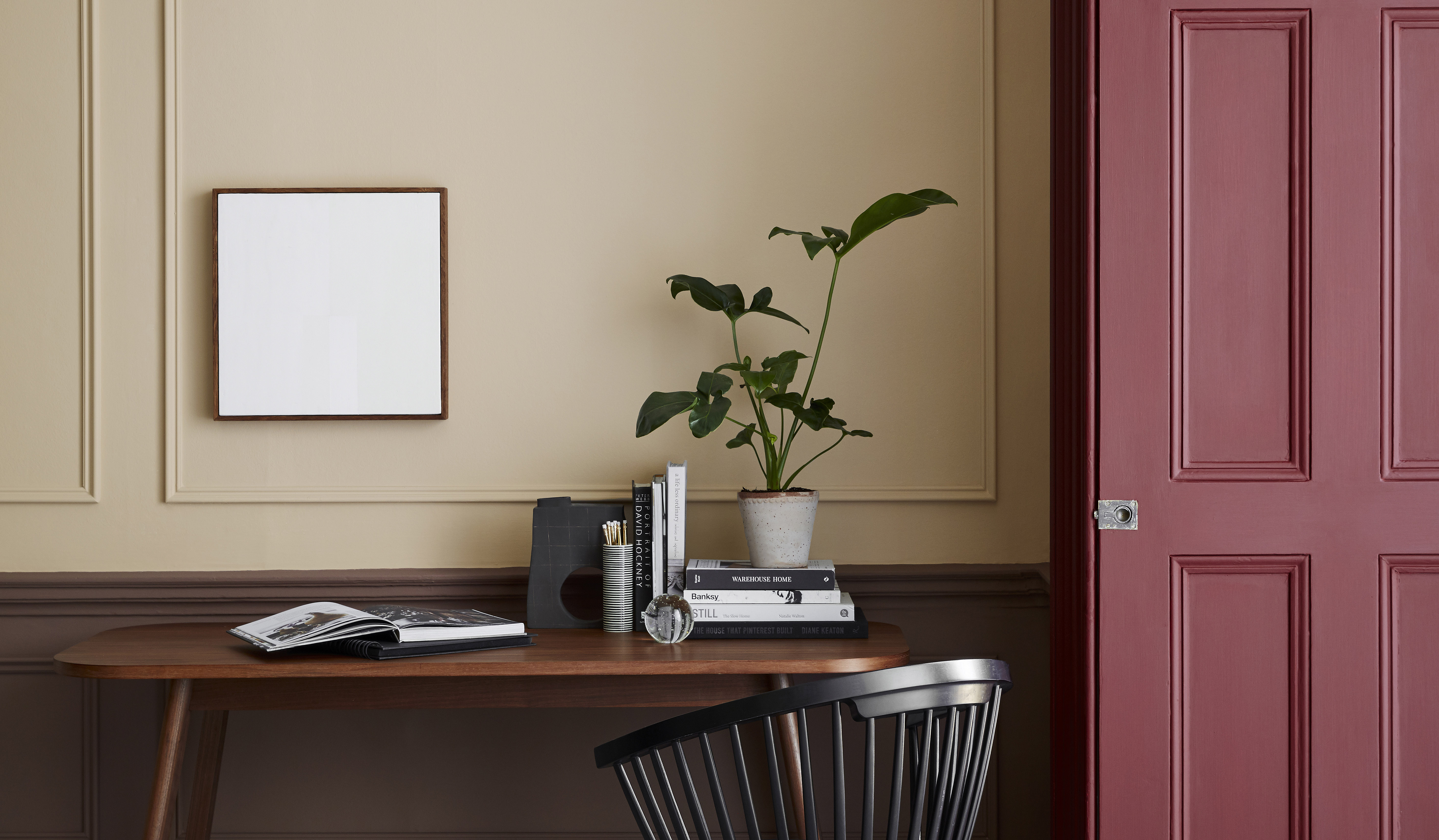

If you're struggling to concentrate when working from home, could it be possible your home office Feng Shui is off? If you do put stock in this ancient science, then maybe it's time to reorganize or even re-design your space to enhance your potential for success at work.
Essentially, Feng Shui is the study of flow and movement of energy or qi within a space. This energy can be directed within a room by choosing the right materials, layouts, and elements. Once that is done, it is believed that people, who are generally very sensitive to energy can feel the effect of space quite quickly.
There are certain Feng Shui rules for every room in the house, including your home office. We spoke to top experts from the field to help us determine the most important one to apply to your workspace.
8 home office Feng Shui rules to live by
'Your home office represents your career and Feng Shui can help you be more productive and enjoy your job more,' says Feng Shui consultant Anjie Cho. 'By using these rules you can make your office the door to bigger and better opportunities or even a space where you always shine at work.'
1. Have a dedicated desk and chair for your home office
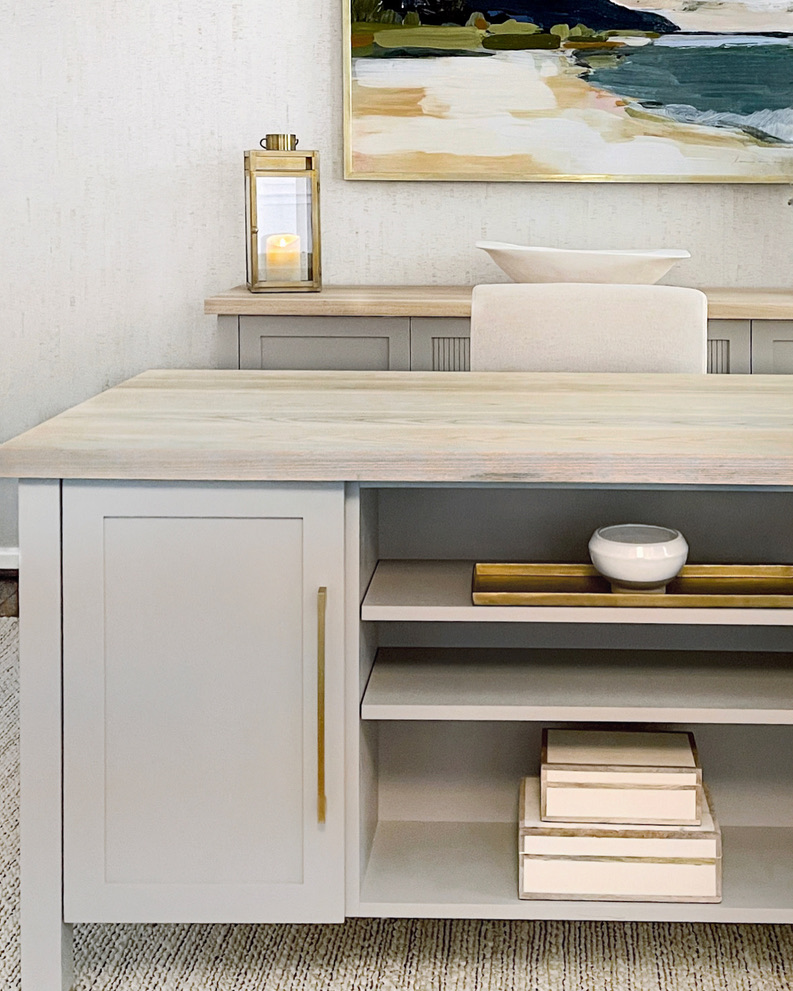
The first task is to find a dedicated desk and chair for your home office, which is used for work and only that. In many cases people tend to use a dining table or even a bed to work, and while in small homes that may be a convenient solution, as per Feng Shui, that could be a hindrance to the energy flow.
'If you don't have the space for a dedicated desk, at least carve out a separate area where you can work,' says Feng Shui consultant Anjie Cho. 'You need to have a location that is stable and steady for you to work at because it directly affects the stability of your work. In terms of choosing a desk, a heavy wooden one is best. Do not choose a light or lopsided desk, or even a glass desk as these are not considered stable as per Feng Shui.'
'When looking for desk ideas for home office, if you want more clients or greater job opportunities, get a bigger desk,' says Feng shui and healthy lifestyle designer Karen Rauch Carter. 'Also, the office chair should have a back and arms, and all the furniture in the room should be well maintained. Wobbly furniture is weak and lessens the opportunity to flow your way.'
2. Position your desk to invite opportunities
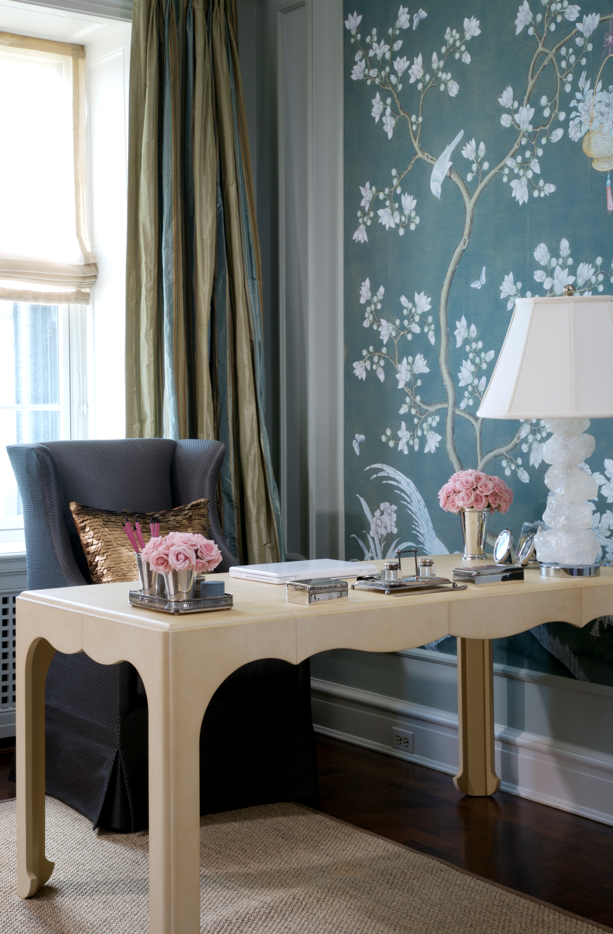
According to Feng Shui, if you want to work effectively from home, make sure the desk faces the door. The door of the room opens up opportunities and fresh ideas, and sitting away from the line of this positive energy flow can be disadvantageous.
'The biggest golden rule to Feng Shui is to position your desk so that you never have your back to the entrance,' says Feng Shui consultant Gary J. Hawkes. 'The primitive part of our brain is always preoccupied with safety from any form of attack and having one’s back to an entrance or office walkway is very unsettling so you are never really relaxed, but always stressed and tired. This can also drain your qi or energy.'
'Make sure your desk is not directly in line with the door, but diagonal to it. You should be able to easily see who is entering the office,' says Karen.
3. Leave plenty of space behind the desk
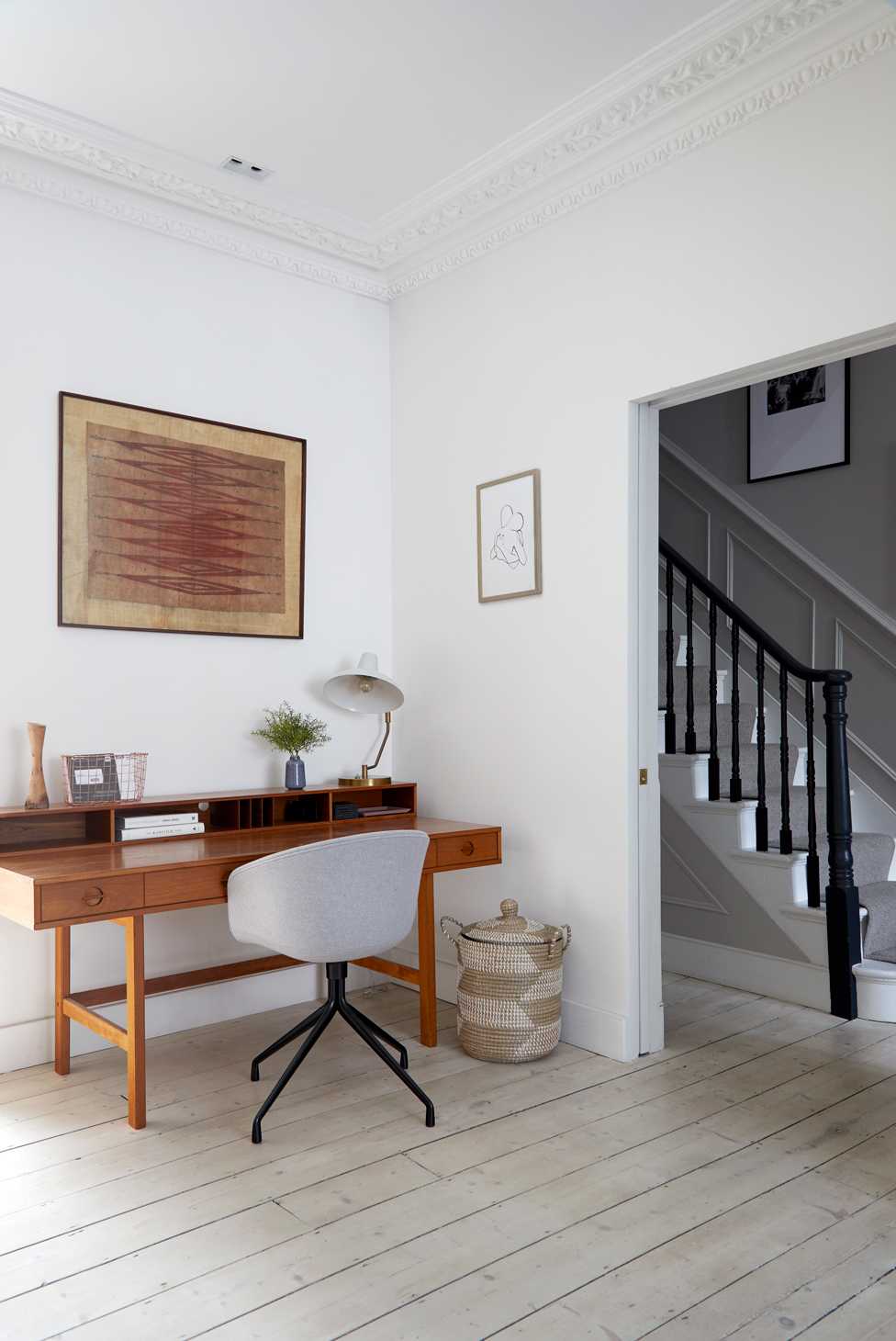
Just as you shouldn't block the flow of energy from the door, the same should be kept in mind when it comes to the work desk. In your modern home office, ensure there is plenty of space behind the chair and enough circulation area in the home.
'You need to have enough room behind the desk – ideally 3 ft or more,' says Anjie. 'This will relate to the expansion of your work and opportunities. If you don't have enough space and you feel you're squeezed up against a wall then it will relate to a crammed work life. You want a chair with a stable height and a high back. This will relate to more support at work.'
4. Bring in plenty of light
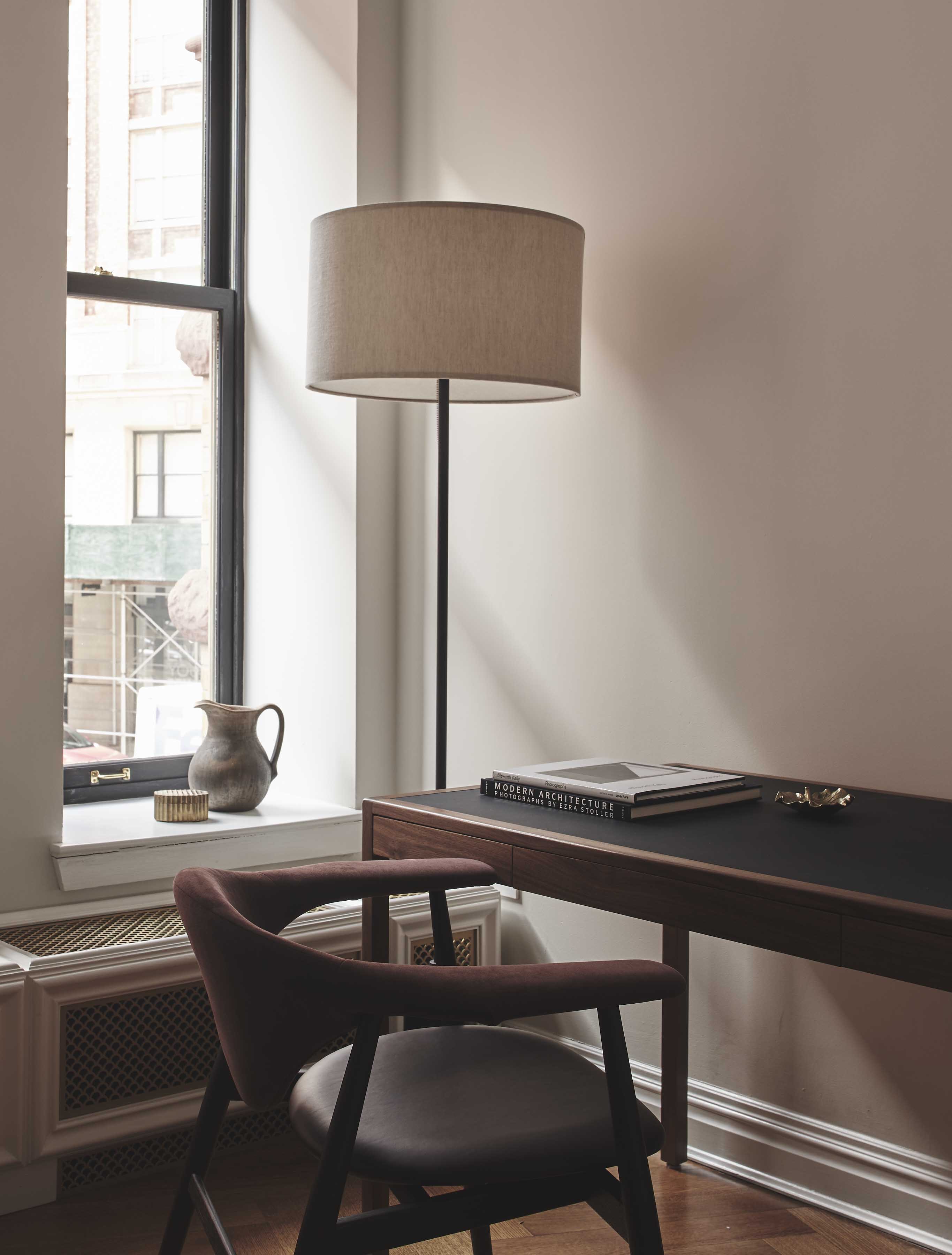
We all love the idea of the desk facing a window with a view, but before you settle in, know this very important Feng Shui rule. 'Facing the window means your qi or energy is constantly flowing out of the room, and your opportunities are slipping away,' says Angie.
Plus, when the desk is placed facing the window, you are no longer in a commanding position, with your back to the door. Also, remember the primary purpose of your room is to work and not daydream or get distracted. A chair by the window will do exactly that. In spaces like a home library or an office, this may seem tempting but in terms of career gains, it will have none.
That being said, Feng Shui does stress on the importance of having natural light in the room. Place your workstation adjacent to the window to enjoy the sun throughout the day.
'If your window is the only view/light option then frosting the glass or partial cafe blinds can help as this will let the light in without the busy street distracting you,' says Gary.
'Plus, a task light on the desk can help you focus on your work,' says Karen.
5. Choose colors based on the direction of the room

'When it comes to home office paint colors, determine which color feeds the space rather than controls or drains the space,' says Gary. 'You do this by using the compass to find out the directions while leaving the room. If it’s an east-facing room, it's best to use wood elements, so greens or blues would work. If it’s a west-facing room, then a metal element and white, greys, or any earthy colors would be ideal. In a north-facing room with a water element, go for blues, whites, or greys.'
'If it’s a south-facing room, it’s a fire element, so greens or reds would work best,' says Gary. If it’s southwest, northeast, southeast, or northwest, it’s an earth element space, and so earthy colors or reds would be ideal.
'While color may be a personal choice, fire and wood promote activity and motivation,' says Dana Claudat, founder of The Tao of Dana. 'Choose reds, oranges, pinks, or green tones.'
6. Go for the right shapes
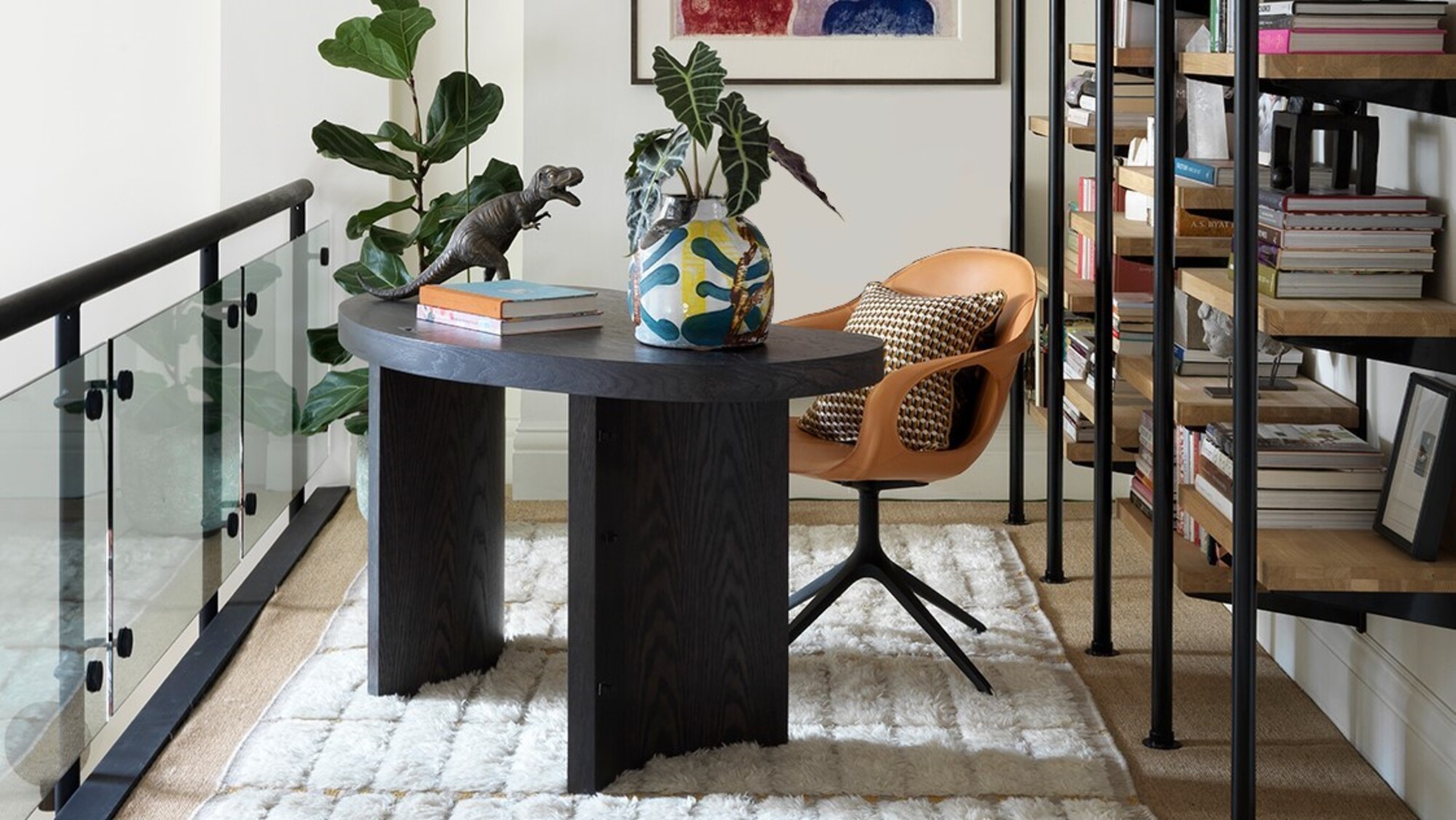
In Feng Shui, certain shapes such as triangles, squares, rectangles, or circles can be used to your benefit. These patterns can be used in upholstery, draperies, pillows, rugs, wallpaper, art objects, and light fixtures.
'Rectangular and square shapes are preferred in Feng Shui, so perhaps a rectangular rug under your office desk could work,' says Anjie. 'This is especially useful if you have a fear of losing your job.'
7. Fresh foliage can positively affect the space
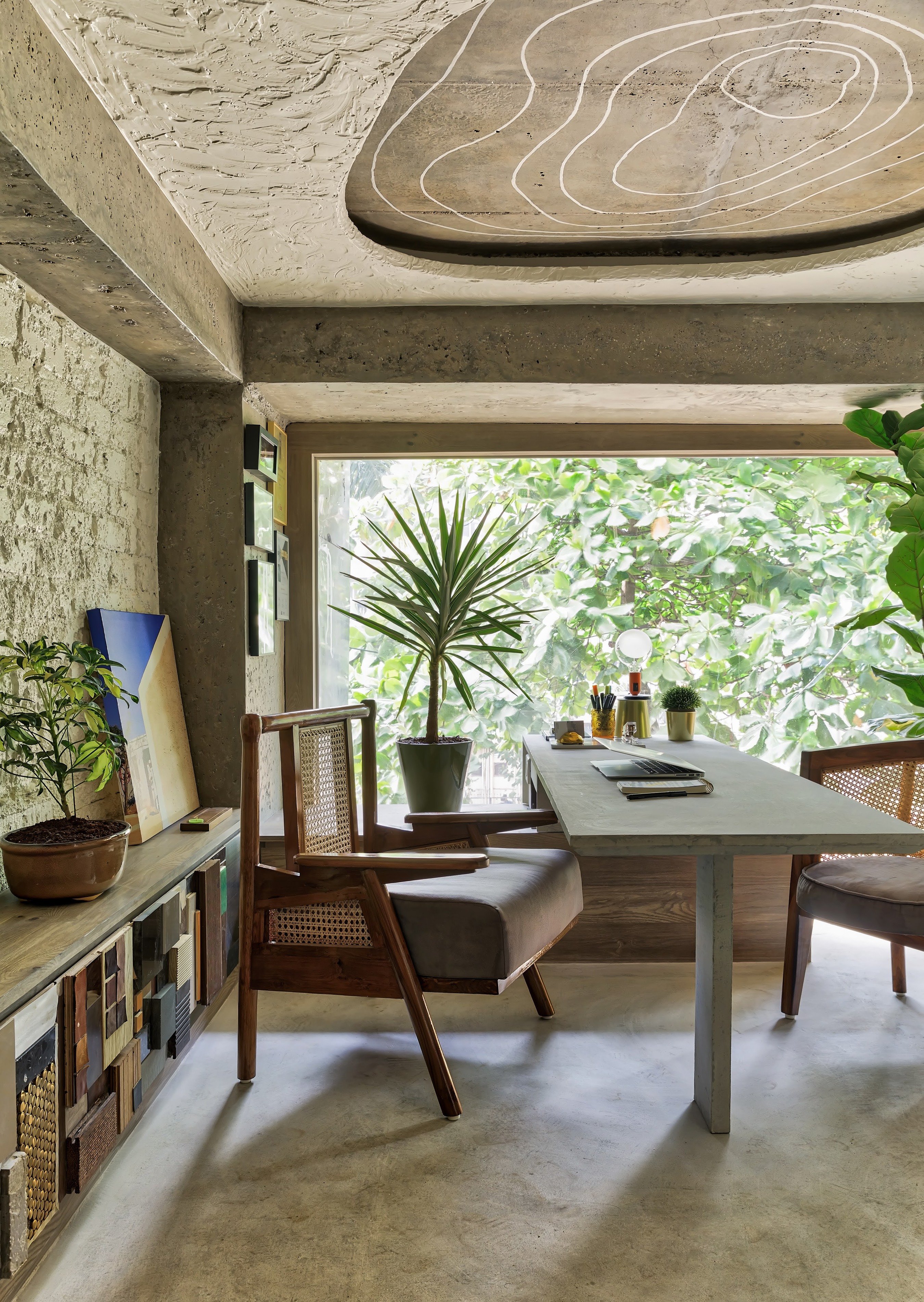
Plants are representative of the wood element, which stands for hardiness, flexibility, healing, and growth. If you want to hone these qualities in yourself and even in your work life, you can do so by going in for Feng Shui plants.
'In Feng Shui, the locations and types of plants are very important,' explains Jessie Kim, founder of Ms Feng Shui. 'Add some life to your interiors with healthy plants that represent what you want and make your home look good as well.'
Ideally, the best plants for the home office are lucky bamboo, freshly cut Peonies, Snake plant, peace lily, money plant, Jasmine plant, Golden Pothos, and Boston fern.
8. Be careful of the symbolism denoted by the artworks
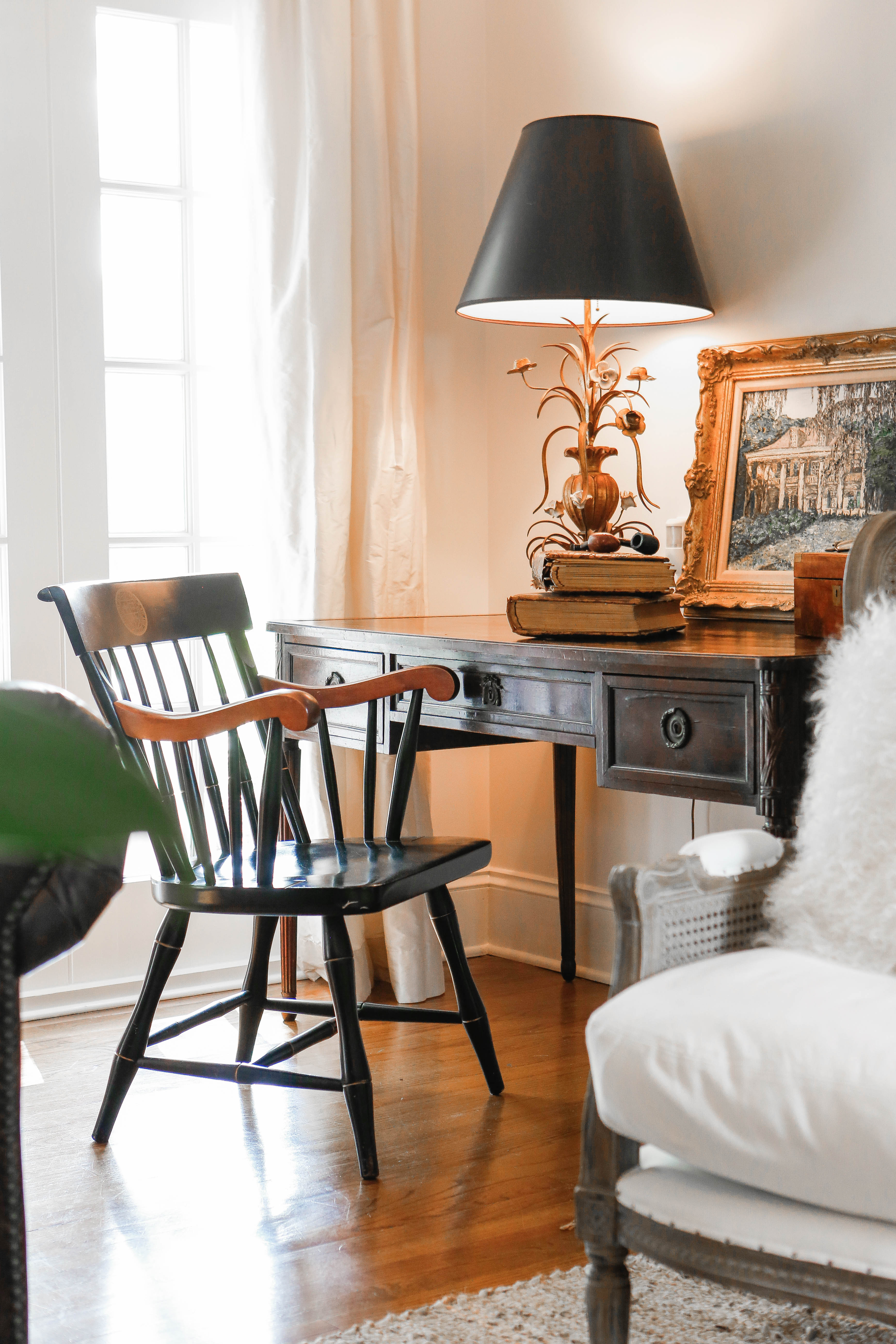
The north is considered the career development zone, and so the ideal direction to hang a painting. According to Feng Shui, the ideal colors for artworks in your apartment office are blue, black and white. In terms of representation, an image of a horse increases strength and endurance at work. Galloping horses will provide additional opportunities for achievements and glory.
Other than that, a sailing ship, an airborne plane, a clear blue sea without obstacles, wheat fields, and the bright sun are considered positive. 'Do not have art with a water container in it. Choose ones that show a strong, stable, and solid symbol like a mountain,' says Karen.
What should you keep on your desk for good luck?
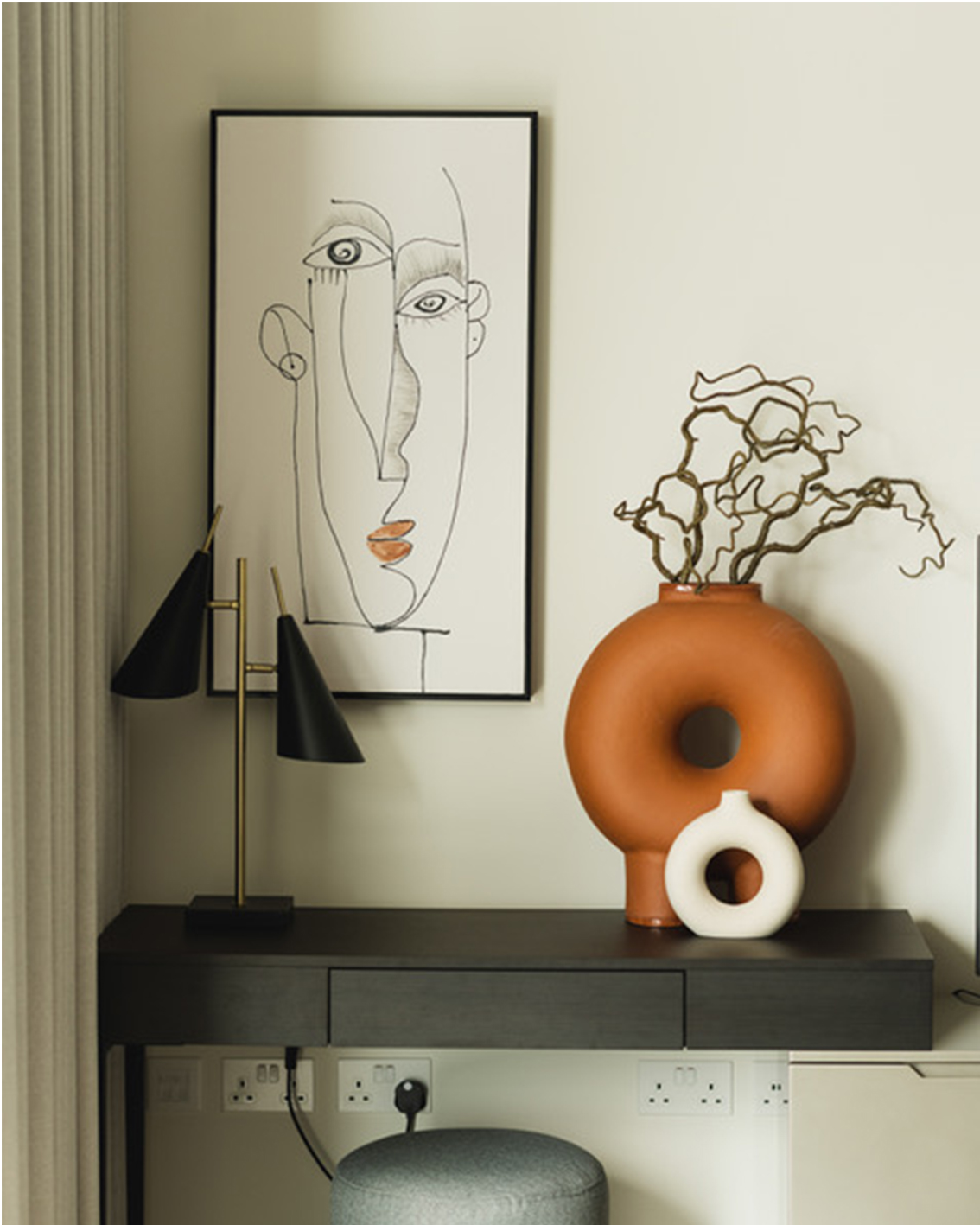
There are several positive elements you can keep atop your statement desk. A plant will not only add color to your setup but also stand in as a symbol for growth. A mirror will encourage introspection and reflect qi into your office. Clear quartz or jade can absorb bad energy and purify the environment. Table lamps or task lights can become a source of creativity so you’re never dry on inspiration. And finally, wooden items such as photo frames will invoke creativity, strength, growth, and money.
Be The First To Know
The Livingetc newsletters are your inside source for what’s shaping interiors now - and what’s next. Discover trend forecasts, smart style ideas, and curated shopping inspiration that brings design to life. Subscribe today and stay ahead of the curve.

Aditi Sharma Maheshwari started her career at The Address (The Times of India), a tabloid on interiors and art. She wrote profiles of Indian artists, designers, and architects, and covered inspiring houses and commercial properties. After four years, she moved to ELLE DECOR as a senior features writer, where she contributed to the magazine and website, and also worked alongside the events team on India Design ID — the brand’s 10-day, annual design show. She wrote across topics: from designer interviews, and house tours, to new product launches, shopping pages, and reviews. After three years, she was hired as the senior editor at Houzz. The website content focused on practical advice on decorating the home and making design feel more approachable. She created fresh series on budget buys, design hacks, and DIYs, all backed with expert advice. Equipped with sizable knowledge of the industry and with a good network, she moved to Architectural Digest (Conde Nast) as the digital editor. The publication's focus was on high-end design, and her content highlighted A-listers, starchitects, and high-concept products, all customized for an audience that loves and invests in luxury. After a two-year stint, she moved to the UK and was hired at Livingetc as a design editor. She now freelances for a variety of interiors publications.
-
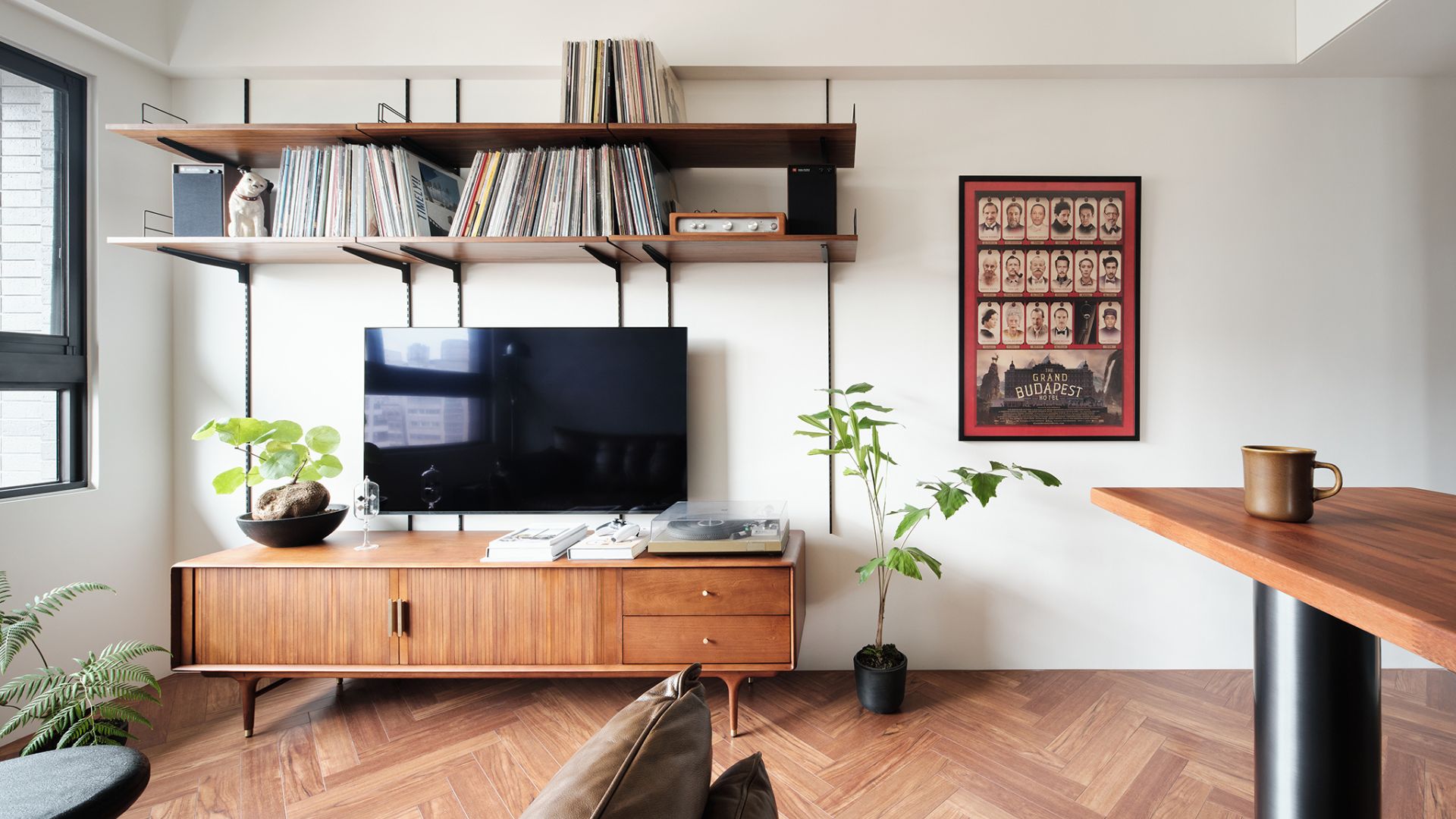 I Asked Vinyl Experts — What's the Best Way to Organize Your Record Collection?
I Asked Vinyl Experts — What's the Best Way to Organize Your Record Collection?If you fancy yourself a vinyl record collector, it's only right that you learn how to organize them too. Here are five smart tips from the experts themselves.
By Amiya Baratan
-
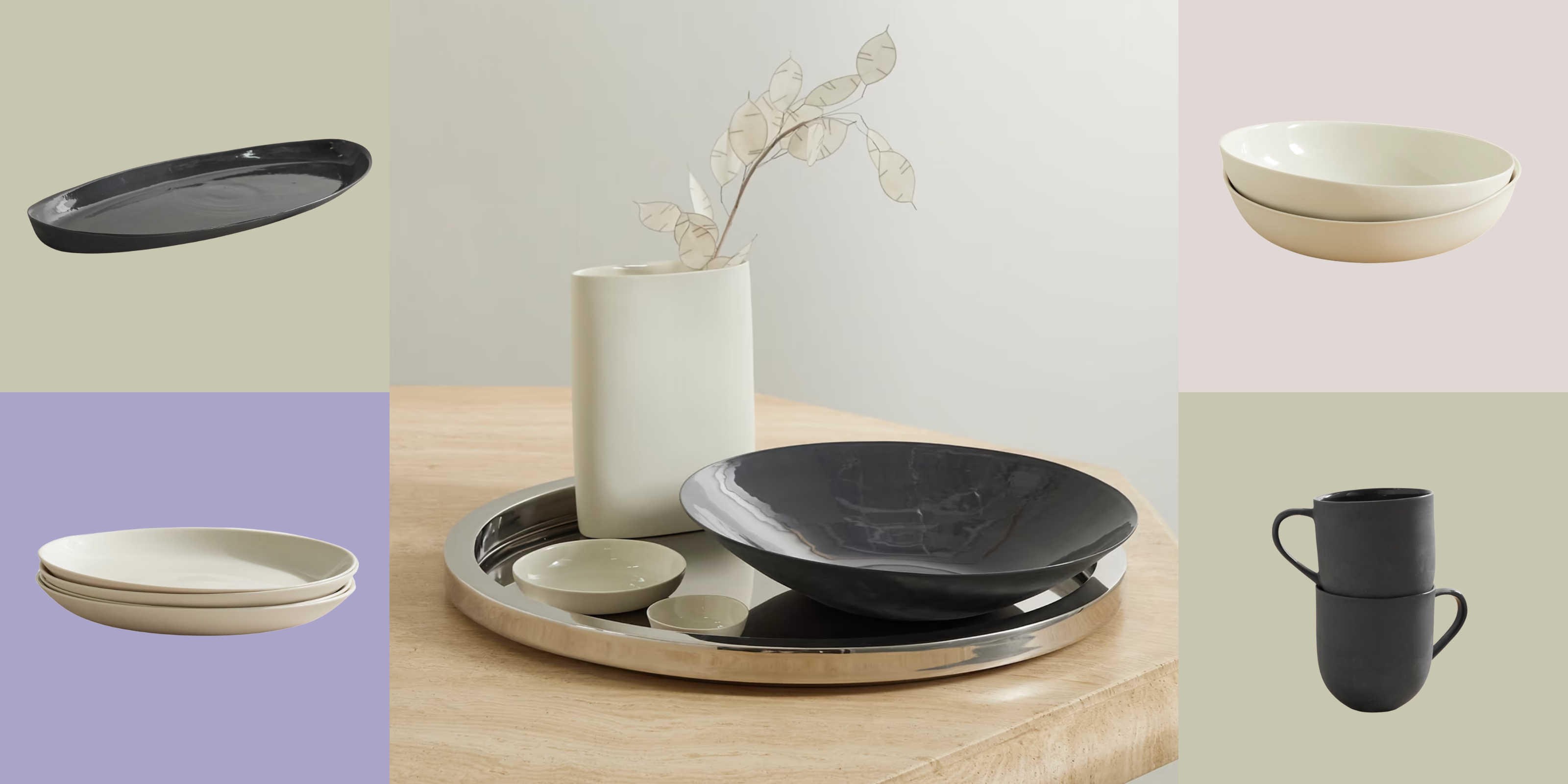 Turns Out, Sustainable Design Can Be Chic, and Net-a-Porter's 'Net Sustain' Curation Is Proof — Here's What I'm Shopping
Turns Out, Sustainable Design Can Be Chic, and Net-a-Porter's 'Net Sustain' Curation Is Proof — Here's What I'm ShoppingFrom the Net Sustain collection, Mud Australia's homeware is not only design-oriented, but eco-focused, too
By Devin Toolen